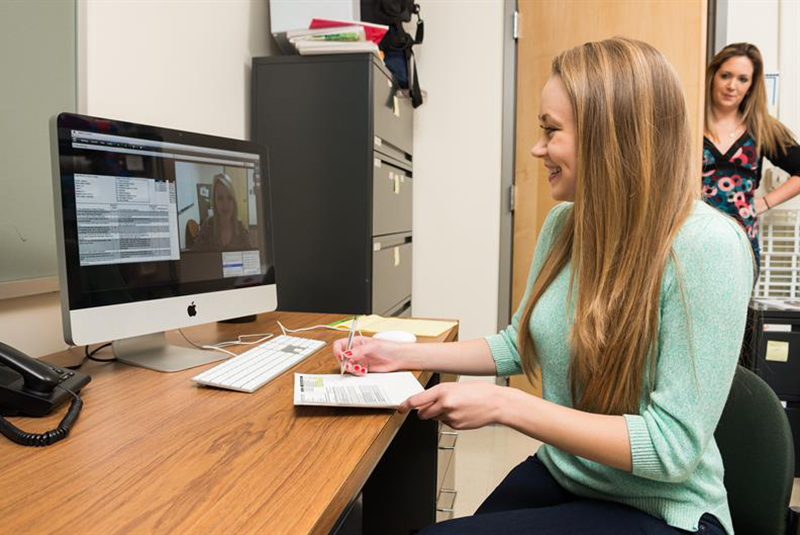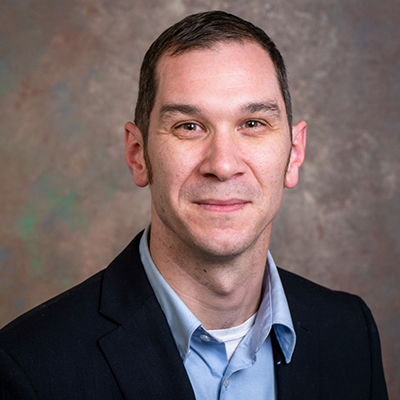
Clinical Science Concentration
Welcome to Clinical Science

The clinical science program in the Department of Psychological & Brain Sciences at the University of Delaware was established in 1968, has been continuously accredited by the American Psychological Association since 1975, and was accredited by the Psychological Clinical Science Accreditation System in 2011.
Our overall goal is to train clinical researchers who produce, apply, and disseminate scientific knowledge. We train clinical scientists who keep abreast of current theory and research and contribute to the knowledge base in clinical psychology.
Nature and goals of the program
We believe that research is an essential career commitment for those who seek and obtain the Ph.D., and students accepted into our program are expected to share that commitment. Students also learn evidence-based assessment and interventions for adults and children with psychological disorders, but students whose primary career goal is the direct practice of psychology would be more satisfied in a different training program.
The aim of the clinical science program is to provide a structured set of research and clinical experiences that will prepare students for a career in clinical science. Therefore, graduates of our program will be competent in designing, conducting, and evaluating psychological research, as well as in delivering empirically-supported psychological services.
Consistent with this orientation, our program is a member of the Academy of Psychological Clinical Science - a prestigious group of 68 university-based clinical training programs and 12 internship sites that share similar goals for their programs and for the training of future clinical psychologists.
An integrative approach to training
The program integrates science and practice, which is reflected in collaborative, translational research. Our faculty and students apply basic psychological theories and empirical findings to real-world clinical problems such as depression, anxiety, child maltreatment and trauma, aggression, and couples’ distress in cancer patients.
Our program’s training model is consistent with the vision of the Delaware Project. Specifically, we train students to emphasize continuity across a spectrum of research activities concerned with (a) basic mechanisms of psychopathology and behavior change, (b) intervention generation and refinement, (c) intervention efficacy and effectiveness, and (d) implementation and dissemination.
Research with faculty mentors
Faculty members maintain visible and well-funded research programs. Much of this work is interdisciplinary, including collaborative projects with scholars in medical schools, universities, educational systems, and community agencies in the surrounding area. Members of the clinical faculty have been active in national, state, and local organizations concerned with advancing psychological knowledge; have played leadership roles in national organizations (e.g., the Academy for Clinical Psychological Science, the Delaware Project); and serve on many journal editorial boards, grant review study sections at the National Institute of Mental Health, and national task forces.
Funding
Funding is robust and drawn from multiple sources, including a Centers of Biomedical Research Excellence (COBRE) grant from the National Institute of General Medical Sciences, National Institutes of Health, plus individual investigator grants from the National Institute of Mental Health, National Institute on Alcohol Abuse & Alcoholism, National Institute of Child Health & Human Development, among numerous other federal and private sources.
Mentor-based training
Students work closely with faculty advisors who mentor them throughout their graduate career. Students often work with more than one faculty member. Faculty mentors provide training in research techniques, scholarly knowledge, and written and oral communication skills that enable students to become successful independent researchers. Students publish research findings in prominent journals; present them at national meetings; develop teaching skills; and write grant applications. These experiences, and others, have helped our graduate students win numerous awards and prepared them for successful research in academia, government, or industry.
Collaborations
All provide training in evidence-based practice. Our faculty members also have research collaborations with the University of Pennsylvania Center for the Treatment and Study of Anxiety, the Helen F. Graham Cancer Center, the State of Delaware Department of Children, Youth, and Families, Head Start Centers, A. I. duPont Hospital for Children, a network of social service agencies in Philadelphia, and area schools.
Work with our faculty
Visit each researcher's bio page, linked below, for information on research interests and current funding.
The following faculty are accepting graduate students for 2025–2026:
- Jean-Philippe Laurenceau
- Jeffrey Spielberg
- Institute for Community Mental Health (co-mentorship with ICMH faculty)
Serving the community, advancing knowledge
The Institute for Community Health (ICMH) at the University of Delaware stands as a pioneering initiative led by the clinical science faculty within the Department of Psychological and Brain Sciences. Committed to transforming mental and behavioral healthcare, the ICMH integrates cutting-edge training, research, and clinical services to benefit the community.
This forward-thinking institute focuses on:
- Establishing vital connections between academic research and community mental/behavioral health systems.
- Enhancing access to science-based care for underserved populations.
- Generating new knowledge in the field.
Combining practice, collaboration and training
The ICMH strives to advance the quality of mental health services and promote equitable access to care through three interrelated entities:
- ICMH Clinic:
- Provides evidence-based psychotherapy and diagnostic assessments for all age groups.
- Trains graduate students and professionals in evidence-based mental/behavioral health services.
- Facilitates interdisciplinary research and integrated care with other STAR Tower clinics.
- Center for Training, Evaluation, and Community Collaboration (C-TECC):
- Partners with community agencies to train, implement and evaluate evidence-based practices within community settings.
- Bridges academia and community stakeholders to enhance the development and effectiveness of psychological and behavioral treatments.
- Trains graduate and undergraduate students to excel in real-world mental health settings.
- Master of Science (M.S.) Degree in Clinical Psychological Science:
- Trains students in evidence-based practices and a scientific approach to clinical care.
- Offers interdisciplinary training within STAR Tower's integrative healthcare environment.
- Addresses workforce shortages by producing skilled mental health professionals in Delaware and surrounding states.
Future accreditation plans
The University of Delaware's program is accredited by the Psychological Clinical Science Accreditation System and the American Psychological Association.
We are committed to training clinical scientists who can ease the burden of mental illness and promote well-being in society through research, treatment development, and service delivery. Our training opportunities emphasize continuity and interdependence across laboratory, clinical, and community contexts. Innovative training initiatives that break down traditional silos across the broad spectrum of clinical science require flexible pedagogy and implementation.
The tenets and expectations of PCSAS are highly consistent with our training goals and methods, and we plan to maintain PCSAS accreditation indefinitely.
We plan to maintain APA accreditation until programs accredited by PCSAS are given the same access to internship and licensure opportunities as are programs accredited by APA.
For questions regarding our accreditation, please contact the following for PCSAS and APA respectively:
Joseph E. Steinmetz, Executive Director
Psychological Clinical Science Accreditation System (PCSAS)
1101 E. 10th Street
Bloomington, IN 47401
Phone: 479-301-8008 / Email: jsteinmetz@pcsas.org
www.pcsas.org
Office of Program Consultation and Accreditation
American Psychological Association
750 First Street NE, Washington, DC 20002
Phone: 202-336-5979 / E-mail: apaaccred@apa.org
Web: accreditation.apa.org

